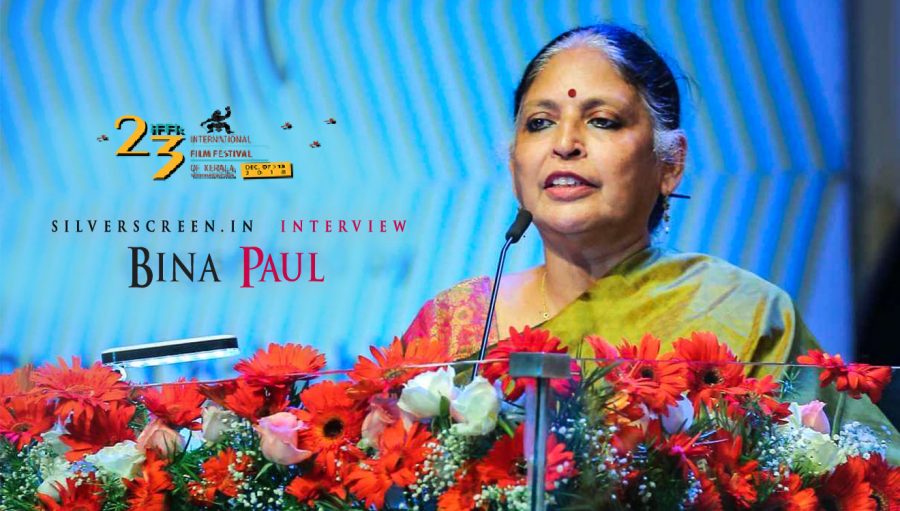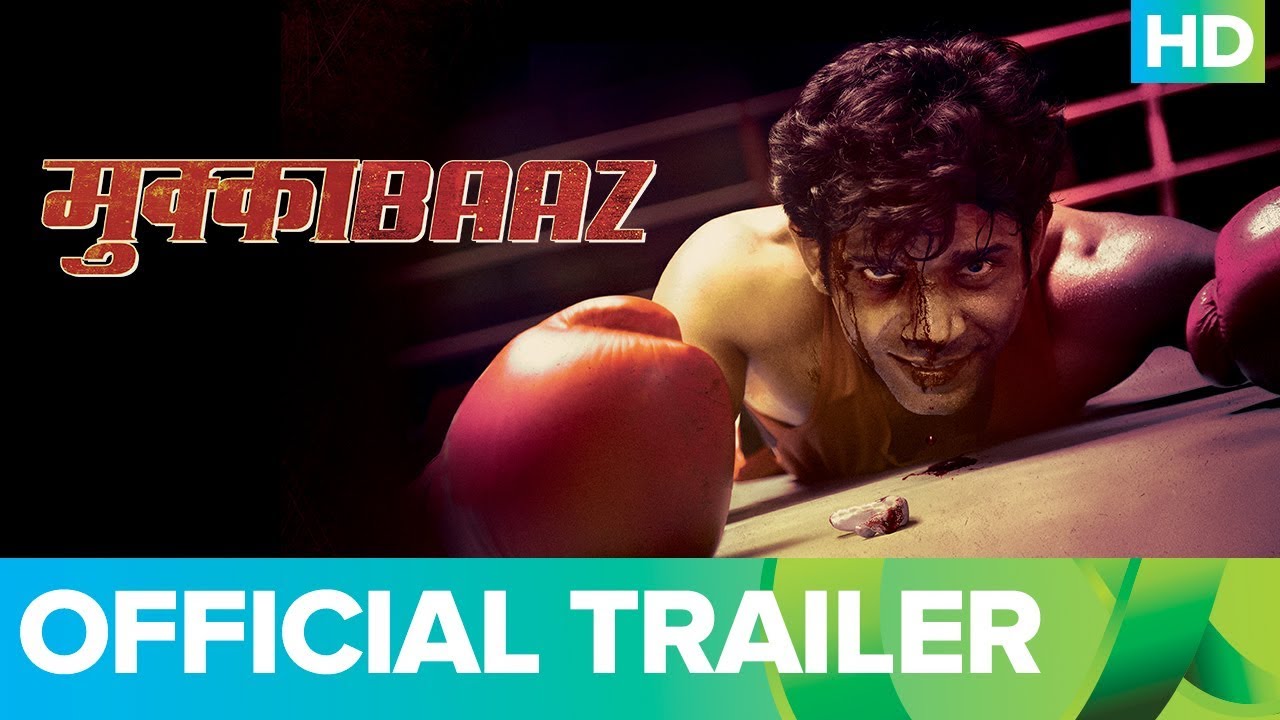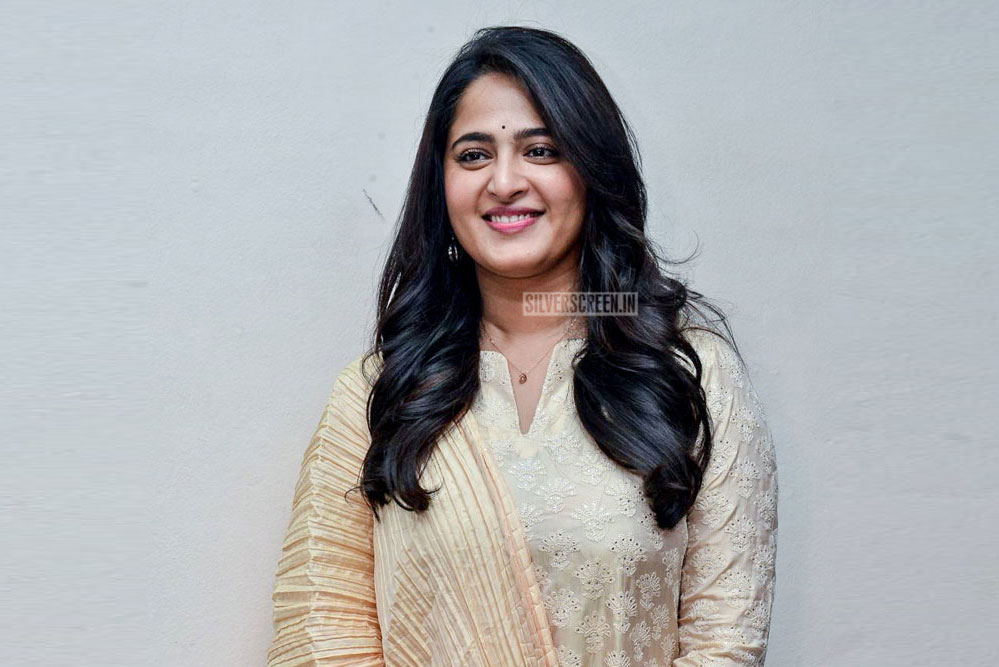From the impact of #MeToo to handling state pressure, and surviving the worst floods Kerala had ever seen, International Film Festival of Kerala Artistic Director Bina Paul talks about her work in curating an audience-driven festival.
Over the years, the International Film Festival Of Kerala (IFFK) has outgrown its status as a film festival and become an intrinsic part of the region’s cultural map. Every December, Thiruvananthapuram city turns into one big venue where around 10,000 delegates from across the country and beyond converge to soak in the euphoria of watching the year’s best films from across the world. In spite of the presence of IFFI (International Film festival Of India), the country’s oldest film festival which has generous backing from the central government, and the centrally-located MAMI Mumbai Film Festival, IFFK has never lost out on local or international attention. Several of its regular attendees take week-long off from regular job to make this yearly pilgrimage to Thiruvananthapuram.
As its artistic director Bina Paul puts it, IFFK has always been a cinephile’s film festival. “We are audience-driven, not market-oriented,” says Paul, who has been instrumental in shaping the film festival into what it is now.
Bina Paul, a renowned film editor with a degree from coveted Film and Television Institute Of India, joined IFFK as an artistic director in 2000. She briefly resigned from the post in 2014, a fall-out of differences with some of the members in Kerala Chalachithra Academy. Nevertheless, she was brought back as the head of the festival’s organizing committee in 2016. This year, Paul and her team pulled off the 23rd edition of the international film festival amidst unprecedented difficulties — thanks to a dire flood that ravaged the state in August — that curtailed the regular financial support extended by the state government. On the final day of the festival, Silverscreen.in sat down with Paul who spoke at length about her experience of helming the film festival in an unusual year, and how she envisages IFFK’s role in the changing political ambiance.
As a curator and artistic director of the festival, how different was this year for you?
Usually, every year by June, we start preparing for the film festival. We start looking at filmmakers, films, the life time achievement awards, the jury… This year, unfortunately, we came into a standstill in August and September due to the flood. We weren’t sure of anything, and we wrote to everyone saying there was an uncertainty. Talking about the financial crunch we faced, well, we have always been a small film festival that doesn’t roll down red carpet for celebrities or does country or world premieres. This year, there was a nonavailability of government funds which we were determined to raise by ourselves through delegate fees and sponsorship. We could do it, although not so much as we had thought. We got a lot of support from the worldwide community. The government and the theatre owners supported us in kind. We weren’t poverty stricken at all – just that this year, we had to garner the resources differently.
Due to the lack of funds, we had to be far more prudent in film selection. Apart from some of the big films from last year, like Roma or Shoplifters, we managed to get a lot of small films. Usually, we do curated packages like LGBT films or films on migration. This year, we couldn’t do that. We had to cut down a lot on the Contemporary Filmmaker In Focus section. So we put all that on mind when we created the main world cinema package. That was quite a challenge. For instance, I have always wanted to bring films of Ciro Guerra in a ‘Contemporary Young Filmmaker In Focus’ section. Since it wasn’t possible this year, I decided to show his new film (Birds Of Passage) in the main section although it isn’t necessarily his best film,.
This year, the film festival was mostly controversy-free, and then the delay and subsequent cancellation of the screening of Majid Majidi’s Muhammad: The Messenger of God happened.
Yes, the film had to be cancelled because we didn’t get explicit permission from the government of India. Kerala has been very straightforward about getting an exemption certificate/censor documents from the I&B Ministry. Every year we apply in time, we give all the details… There is always complete transparency in our dealings. This year, unfortunately, they held back permission (to screen Muhammad) which was very disturbing because everybody knew the dates of the festival, and we had sent repeated reminders (to the concerned authorities). Yet we got neither a No or Yes from them. Last year, we didn’t get permission to screen Nude since they said very explicitly that it couldn’t be screened. This year, we put Muhammad in our programme assuming that the consent will be given, especially since the film had been screened at Kolkata International Film Festival. The chief guest, Majid Majidi, also had an expectation that it will be shown.
This year at the festival, there were few films of women filmmakers from India. Also, I noticed that Zama, which was part of MAMI, didn’t make it to the list.
There were some hits and misses because of rentals and sales agents. Also frankly, some people didn’t like the film (Zama). I am extremely conscious that women filmmakers need to be showcased. Their participation is important. Women telling stories does make a difference. This year, we had Icíar Bollaín’s Yuli, Mia Hansen-Løve’s Maya and so on. We do consciously or subconsciously include women filmmakers in our package every year.
True, we had barely any film made by women from India this year (barring Manto). It is strange. There is this debate whether a reservation for women filmmakers should be there at film festivals. I am not sure if reservation is the right word, but I do support that idea very much. I believe that we have to bend it a little to straighten it. There should be a consciousness that there are more odds that you face to make a film as a woman.When somebody from a more marginalized community comes forward with a film, there is a greater struggle that we need to appreciate and acknowledge.
At any stage of the selection process, did you take into consideration the on-going #MeToo movement?
Well, there wasn’t really a situation where we had to re-screen our shortlist. The makers’ of Balekempa didn’t apply at all. We did screen Manto which has Nawazuddin Siddiqui in it. But Manto is made by Nandita. How could we have not shown that film! I am not one for knee-jerk reactions. I am a complete believer in all that has happened, but let’s just say that as a film festival programmer, I am also aware of the fact that films are made not by one person. I would give as much weight to the fact that yes, there are other people involved in the process of film making. It’s complex. There is not a simple answer. The #MeToo movement is hundred percent to be ratified, but the repercussions of the movement have to be done with great care, analysis and political thought. I do appreciate that MAMI was so forthright about #MeToo movement. It did make a statement.
Two of the films that were screened at IFFK, Roma, and Ballad Of The Ballad of Buster Scruggs, are produced by Netflix, and the latter is already available for streaming online. Do you think online streaming websites will change the way film festivals function?
You see that Roma played here in a full-house auditorium. The reason is that some films need a big screen experience. It’s not the availability of the film that matters to the audience, but the experience of watching the film in a giant screen with a 7.1 sound, with a like-minded crowd. We included these films in the package because the audience deserve that opportunity.
I don’t think there could be anything that replaces film festivals. When you watch Roma or Manto in a place like Nishagandhi (open-air theater), when there is a filmmaker like Nandita (Das) attending the screening and talking about the film, or a person next to you wanting to talk to you about the film, I think there is a certain value added to your experience. May be I am old-fashioned. For me, it’s not the consumption of cinema that is the key. You can find every film now a days on torrent sites. I would still choose come to a film festival for it offers far more takeaways than just a movie-watching activity.
IFFI, this year, dropped some films that they called ‘anti-national’. With the country’s oldest film festival turning into a rigid ideology-driven platform, do you think IFFK’s responsibility to the film-making community in the region has increased? Do you also feel the political pressure mounting?
Recommended
I am not for comparisons. I say all film festivals have a responsibility; how you perceive that responsibility is what makes the difference. IFFI has a different viewpoint. It’s the government of India that it chooses to represent. Here at IFFK, with a very cine-literate audience both at the international and local level, we have important responsibilities. IFFK isn’t for extravaganza. When a person from rural Malappuram comes to Thiruvananthapuram for the film festival, she/he isn’t bothered about if the films have already been shown at Kolkata, Goa or MAMI. As a curator, I want to cater to that audience. They are my responsibility. Of course, with the changing times, the nature and degree of responsibility changes. There has always been the pressure – Not political, at least not in Kerala so far. In any part of the world, at an art event like this where several thousand people gather, the state always feels threatened. The state will, at some point, want to control or put its hand in. This is happening all over the world. It is our responsibility to create a critical mass in such a way that it (a mishap) never happens.
IFFK had tried out a filmmaker’s market some years ago. Why did you discontinue it?
It’s primarily because we don’t have a huge budget to set up a market. It is a different dynamic. You need to think differently, need an investment as big as the one required to set up a festival, you need to attract certain kinds of films and people. I don’t think we have the means for it at the point. I think we have stuck to it that we are a cinephile film festival, driven by the audience rather than by the market.
***
Feature image courtesy IFFK



